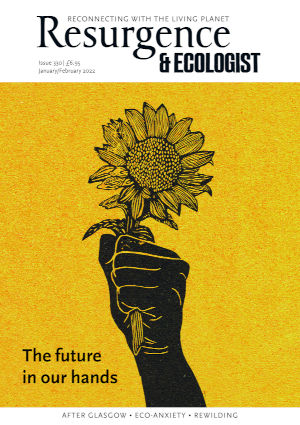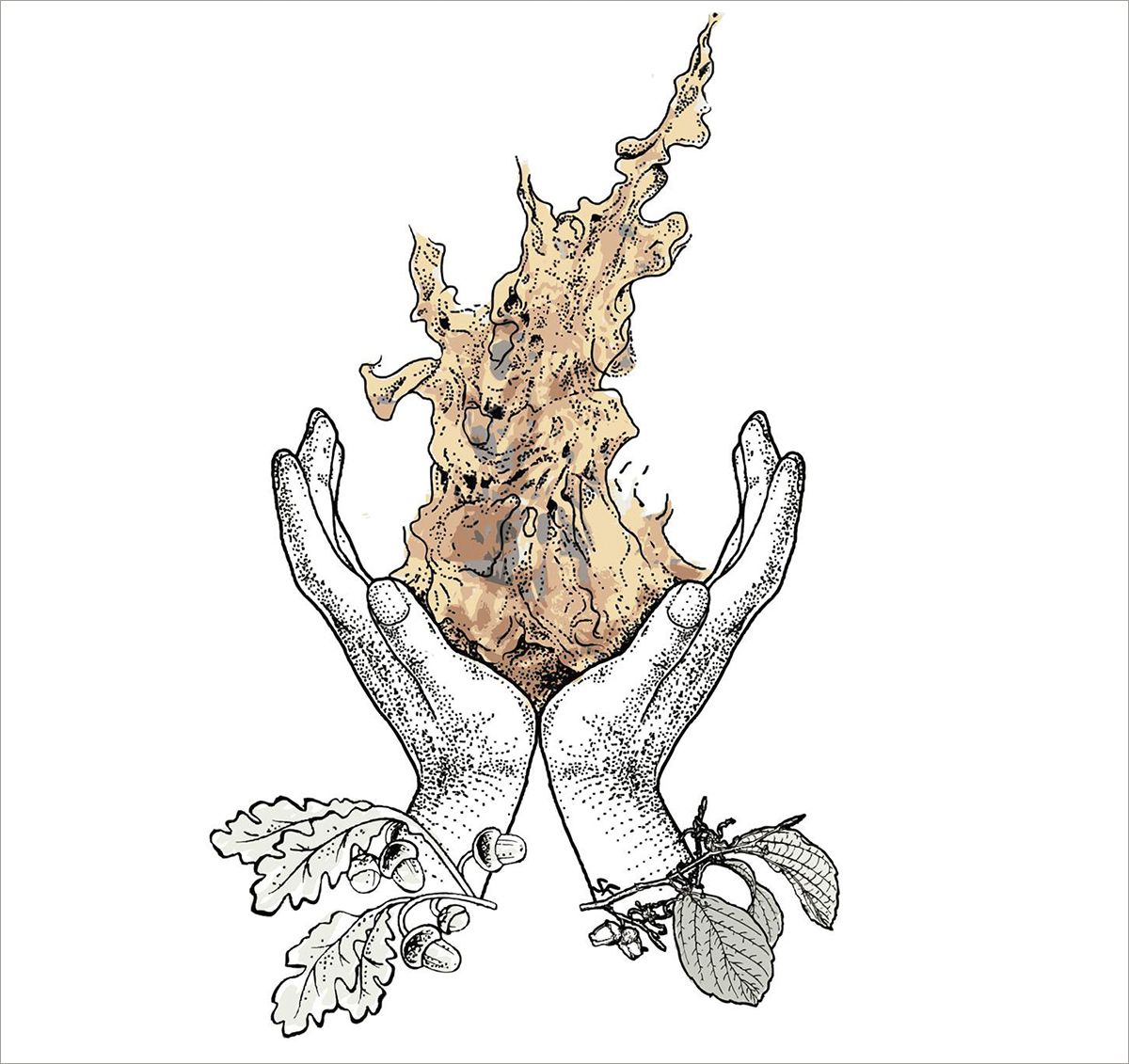“Through barren thorns we plant our seeds to be sown, but with no nourishment how are we meant to reap our crop and plant our standing stones?”
This is a line from ‘Heavy is my Heart’, a song written by 21-year-old Mikey Tait (stage name Karacta) from south-west London. It expresses his dissatisfaction with humans’ disconnection from Nature and from each other. Tait is by no means alone in thinking this. According to preliminary findings from a survey of 10,000 young people in ten countries, 59% of respondents said they were very or extremely worried about climate change. Over half felt “sad, anxious, angry, powerless, helpless, and guilty”. The research, led by the University of Bath, concluded that climate anxiety in many children was associated with “inadequate governmental responses” and urged immediate action as a result. As ecopsychologist Joanna Macy argues, when we feel disempowered we closet our anger, fear and anxiety. The result is denial, depression and apathy. How, then, in the face of continued inaction on the part of many governments, can we help mitigate this? Part of the answer lies in creating a safe space for connection and expression.
The Visionaries is a London-based organisation that works with schools to help young people gain a sense of empowerment and a healthy relationship with the natural world. “As long as we are disempowering people from a young age, which the education system often does, we are delaying the possibility for more participatory solutions to the climate crisis,” operations director Max Girardeau tells me. He explains that the ‘hero mindset’ in the current education system encourages young people to believe that someone else in a more advantageous position will fix the global problems, rather than taking responsibility themselves.
To counteract this, The Visionaries runs wilderness rites of passage experiences for young people from inner cities to help them develop confidence in themselves and appreciate their own gifts. Girardeau feels that this sort of transition experience from adolescence to adulthood is often not supported in society and the current education system and is vital to the empowerment of young people. Some of the young people who participate have never been outside the city (sometimes even their own postcode), and having time alone in Nature and camping with a group of others is a novel and transformative experience for many. Tait took part in one of the programmes. “We were walking barefoot to connect with the earth and I had this weird thing,” he told me. “I thought, why is dirt from the ground associated with something nasty? It’s just earth. I can wash it off. It’s not hurting me. So why has that been an issue for me? Why, until now, have I not walked outside barefoot? Why is it weird? We live on this Earth but we can’t walk barefoot.”
His song ‘Heavy is my Heart’ was inspired by the experience. “If you listen to the songs I write now compared to what I wrote before, they are very different,” he says. “The Visionaries allowed us to express our fears differently – through art, music, activities. It’s important that people can get their opinions out there.” Leah also took part in the programme. She told me she felt she was able to leave elements of her old identity and struggles behind and focus on helping others to develop confidence. “I just felt so different afterwards and realised that I wanted to build a new identity based on helping people, like they do at The Visionaries.”
Lucy O’Hagan, who runs similar wilderness rites of passage programmes at Wild Awake Ireland with social ecologist Kathryn McCabe, explains that it is important to hold space for emotions like rage and grief for our young people. “They can often feel the pain of the Earth,” O’Hagan told me, “and this should be expressed, not shut down.” Self-esteem and confidence, Girardeau suggests, are key to encouraging young people to act in healthy and positive ways. This is especially important for groups who are marginalised.
Social enterprise Solutions for the Planet also creates safe spaces for young people to express themselves and engage with big global issues such as climate breakdown. This work includes a podcast for young people to voice their views on current issues. The organisation also runs a year-long project with secondary schools called Big Ideas, which supports young people to come up with creative, beneficial, achievable solutions, helping them to unpack the problems so that at each stage they can feel in control rather than becoming overwhelmed by catastrophic issues. In 2018, one of the groups on the Big Ideas programme came up with Sea Savers, a campaign to remove single-use plastics from school canteens, which has now been rolled out by 60 schools.
The work of these organisations highlights the need of the education system to shift to focus on encouraging young people to develop confidence in their own opinions and be taken seriously for their ideas rather than just getting good grades. This would help to promote better relationships and also foster a sense of responsibility and agency, instead of an overwhelming sense of fear and eco-anxiety. In the words of Tait, “It’s the way of presenting the facts about climate change that is important. You can strike someone with fear and control or you can encourage them to explore it and express it in their own way.”








